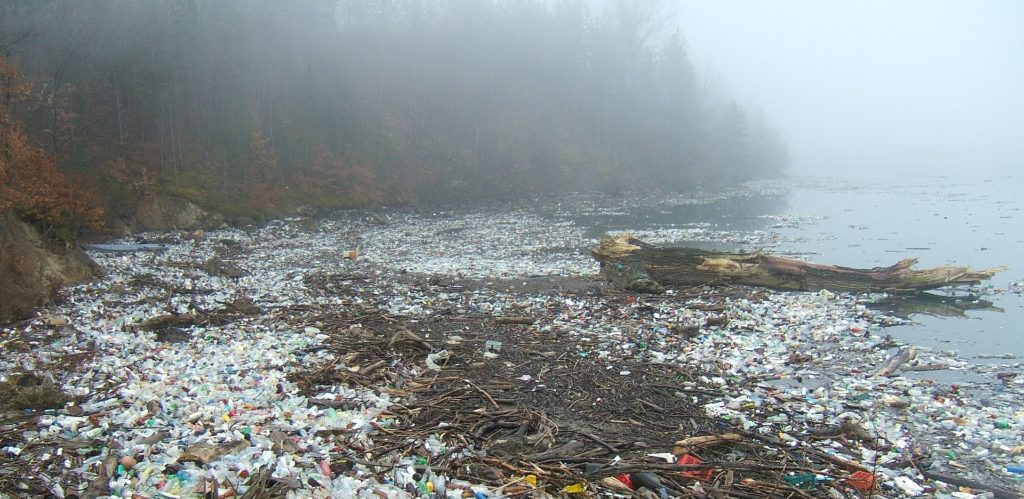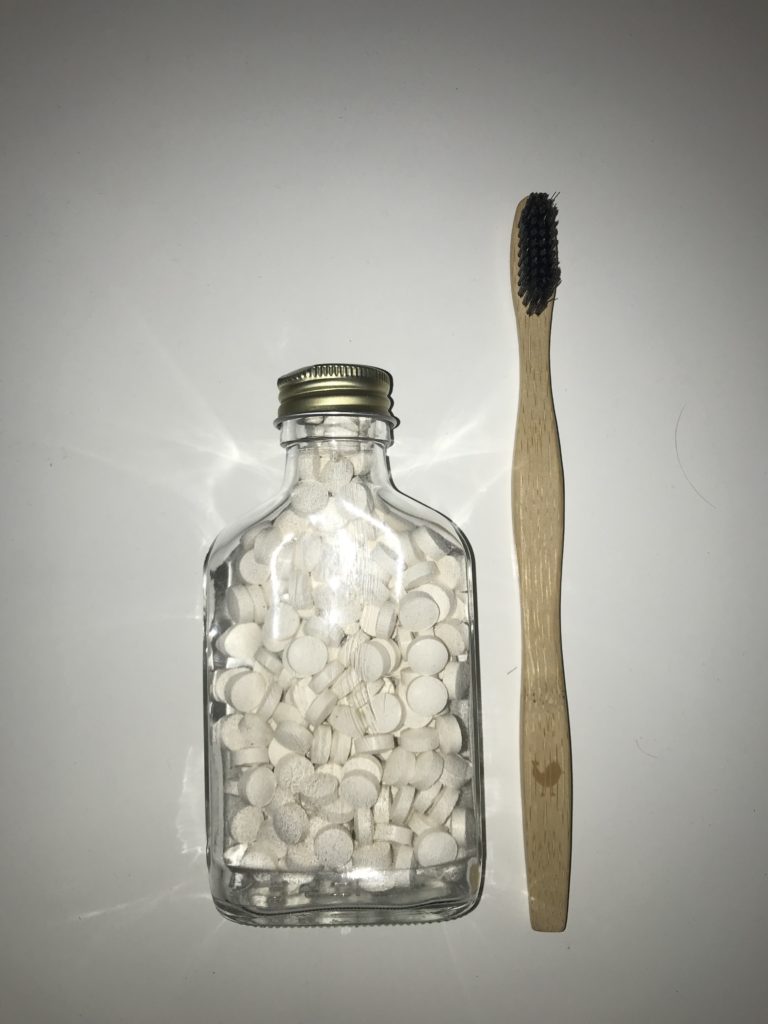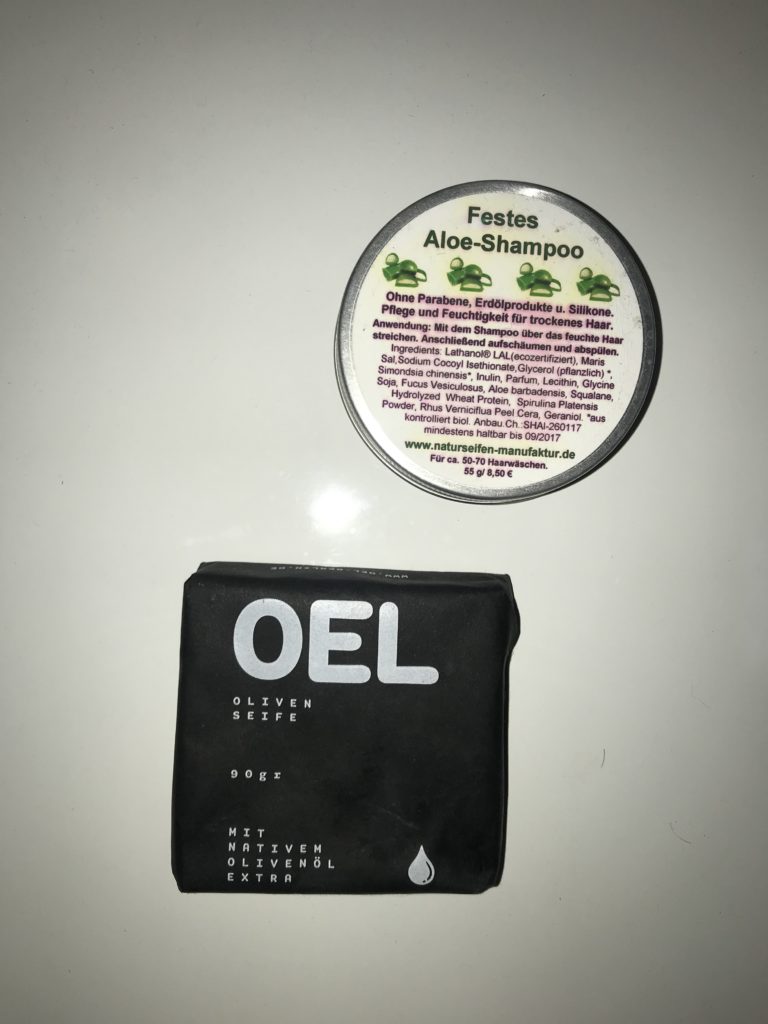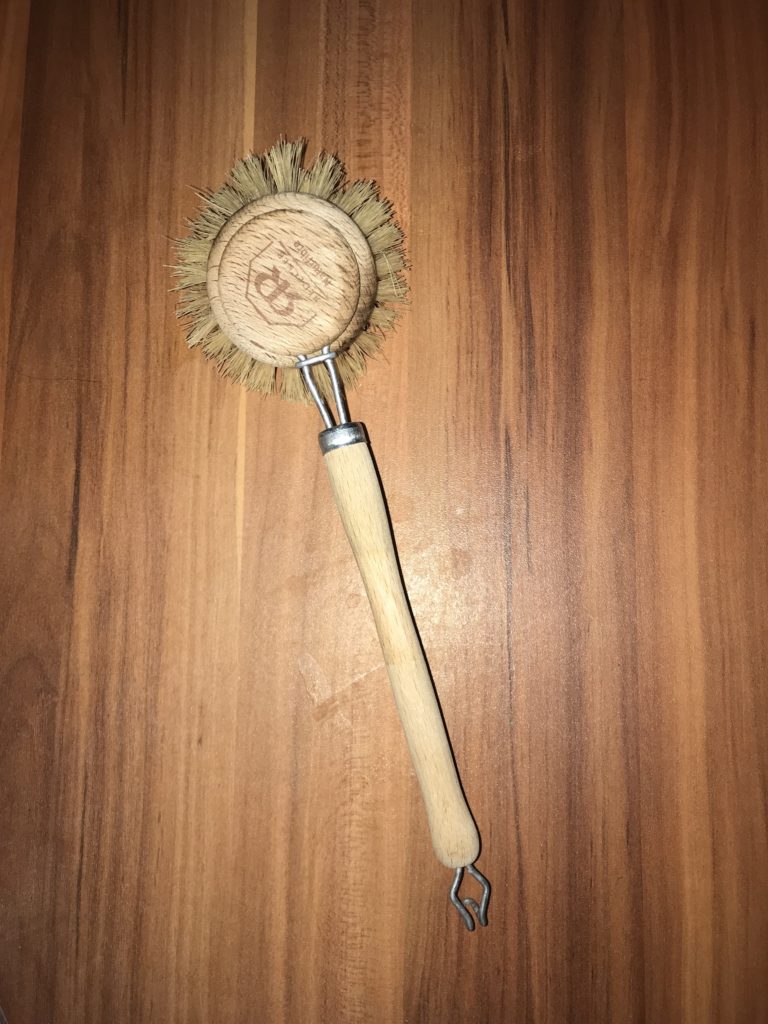
Every July, the Plastic Free July movement challenges you to refuse single-use plastic for one month to raise your awareness about your personal consumption habits and reduce your personal plastic consumption. It starts with a month, but might well become a new habit for a lifetime.
According to the website, Plastic Free July participants:
- reduce their household waste on average by 76kg per household per year (7.6%)
- cut their use of recyclables (disposable packaging) on average by 28kg per household per year (5.6%)
- contribute to a total saving of 490 million kg of plastic waste each year
Apart from this direct impact, it is also fun to rethink your consumption and come up with alternatives for single-use plastic packaging, which is not always easy.
Personal Experience
 Personally, I came across the Plastic Free July Challenge for the first time in 2014 and got very excited about reflecting on all the plastic products I buy daily and trying to replace them with more sustainable alternatives. It was not an easy challenge to find replacements for some products at all and there are still debates if the plastic free alternatives are more climate friendly than the plastic in the first place, mostly because of their energy needs. I have a pretty pragmatic take on it – energy, we can produce in very climate friendly ways, plastic is polluting our environment in a very hard-to-reverse way. (In the end we might be better off using all the oil we have left to produce all the solar panels and wind-turbines we need.)
Personally, I came across the Plastic Free July Challenge for the first time in 2014 and got very excited about reflecting on all the plastic products I buy daily and trying to replace them with more sustainable alternatives. It was not an easy challenge to find replacements for some products at all and there are still debates if the plastic free alternatives are more climate friendly than the plastic in the first place, mostly because of their energy needs. I have a pretty pragmatic take on it – energy, we can produce in very climate friendly ways, plastic is polluting our environment in a very hard-to-reverse way. (In the end we might be better off using all the oil we have left to produce all the solar panels and wind-turbines we need.)
Some things were easy to replace, once you start paying attention:
- Fruits & veggies -> bring your own bag and buy the unpackaged products
- Drinks -> buy the glass bottles and drink tap water
- Utensils -> carry reusable (camping) utensils (chop sticks do the trick for me)
- Straws -> order without (I still struggle with this) and carry glass/steel drinking straws
- Ice cream -> order in a cone
- Oat / Soy Milk -> make your own, it’s really easy!
Other I found harder:
- Shampoo -> I now use solid shampoo bars
- Toothpaste -> dental tabs do the trick
- Toothbrush -> there are pretty nice bamboo toothbrushes out there now
- Deodorant -> comes in solid form as well
- Dish washing liquid -> I use ecover, which comes in a plastic free bottle
- Dish washing sponge -> I use a wooden brush
- Washing powder -> ecover or frosch are packaged plastic free
Still unsolved (please leave a comment if you have a solution):
- Ordering food
- Sunscreen
- Medicine
- Toilet paper (I use the wrapping as trash bags for now)
This list is by no means complete, so if you have more ideas or unsolved issues, please leave a comment.
Conclusion
In conclusion, making the first step isn’t hard, but very beneficial. It raises the level of your personal consumption awareness and you’ll be surprised how easy it is to make more conscious choices. Once you figured it out, it becomes even easier to stick with your plastic free alternatives. If you are living in Berlin, there are plenty of shops that help you with the challenge as well!
As with most issues in sustainability, don’t demand perfection just yet. If you have to buy single-use plastic, make it a conscious choice and start looking for alternatives. It is not about being perfect, it is about getting started!
If you want to do more, promote the challenge, let your supermarket know what you are missing, ask your market merchant to provide a packaging alternative, and post any other ideas and resources you have in the comments below!!
Resources and Shops
https://www.plasticfreejuly.org
https://myplasticfreelife.com/plasticfreeguide/
https://www.veganladen-kollektiv.net/veganladen/
https://original-unverpackt.de/
https://veganz.de/
https://de.lush.com/
- #005 – Plantyflix - November 10, 2020
- #003 – Dycle - September 24, 2020
- #002 – SunCrafter - September 22, 2020





Plastic Free July is a great way to rethink consumption and find sustainable alternatives, and Telkom University Jakarta could encourage its community to participate and share their plastic-free solutions.
The Plastic Free July challenge appears to be a worthwhile initiative. By participating, individuals can reduce the amount of single-use plastic they consume, thus reducing their household waste. It is also encouraging to know that participants cut their use of recyclables, such as disposable packaging, by 28kg per household per year. The total saving of 490 million kg of plastic waste each year is a significant contribution towards reducing plastic waste globally.
How to reduce plastic waste? Has the way to reduce plastic waste been disseminated to the public?